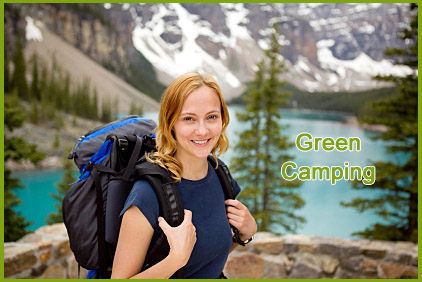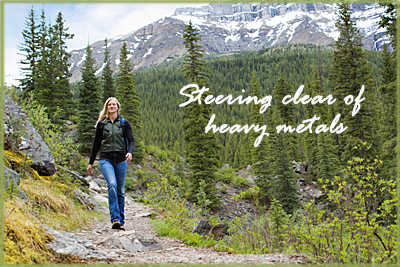
As busy as our lives are these days, even something as simple as planning a vacation in the great outdoors can become a source of stress. This goes double if you’re trying to incorporate the green living techniques you use at home while you’re miles away from civilization. Here are four simple ways to minimize your footprint and keep it green any time you go camping.
1. Plug the Energy Drains at Home
One of the easiest things to overlook when preparing to go on any type of vacation is the state your home will be in while you’re away. This is especially important during the summer months when you tend to use air-conditioning and/or watering systems to feed your lawns and gardens on a consistent basis.
Start by unplugging all electronics and appliances that won’t be in use or needed while you’re away. Plugged-in electronics can continue to use energy even when turned off so the only way to stop these energy vampires is to unplug them completely. Ideally, the only things that you should keep powered on are lights to deter burglars, but instead of running them 24/7, put them on a timer so that they only run at night.
Turn your air conditioner off and set your thermostat to 80 or 85 F. This sounds a little hot but you would be amazed how much energy is saved with every 3-5 degrees you turn up the thermostat in the summer. Check the extended forecast to see if there will be any rain or cooling trends and adjust or reduce your timed lawn or garden sprinklers accordingly, to save water.
2. Pack Light, Pack Smart
There’s no getting around it: the more stuff you bring with you when you go camping, the more stuff you’ll either have to leave behind or haul back. Remember, the whole point of camping is to enjoy the outdoors not drag all the creature comforts of home along with you! Try to limit what you bring to the things you know you will really need.
One way to camp in comfort without over-packing is to bring equipment that is either multi-purpose or reusable. For example, a bottle of multi-purpose soap that can clean your dishes, clothes, and skin is a lot easier to carry than a bunch of bottles of shower gel, shampoo, and detergent. Bring along something like Wilderness Wash that’s biodegradable and free of fragrance and other harsh chemicals.
Your silverware and dishes should be reusable, ideally made of aluminum, stainless steel, or BPA-free plastic. Ditch disposable plates and plastic utensils because they create a tremendous amount of waste.
3. Respect the Outdoors
When you camp, be sure to show your love and respect for nature by not causing unnecessary damage to your environment. When you shower or wash your dishes, do so at least 200 feet away from any natural sources of water to prevent the chance of contamination (even when using biodegradable soap). Instead of burying your trash, take it with you and ensure that it is properly disposed of. Stick to well-worn paths and trails when you hike, even if it means taking the long way to your destination –creating shortcuts can cause permanent damage to an area.
Be respectful of animals you encounter along the way, after all, it’s their home you are visiting. If you’re camping in bear country make sure you take the proper steps to conceal your foods because hell hath no wrath like that of a hungry bear! See this site BackCountryAttitude.com for more information on how to bear-proof your campsite.
4. Leave Your Campsite the Way You Found It
“Leave No Trace” is one of the cornerstones of eco-friendly camping. When it’s time to leave, your campgrounds or camping area should look just the way they did when you arrived if not better. It can be tempting to a leave a mark that shows you were there, like a carving in a tree or scratching your name on a rock. These types of activities can cause long-term damage and increase the chance that others will add their mark too –further scarring the land.
Resist the temptation to take home souvenirs. Leave stones, feathers, artifacts, shells, petrified wood, etc. so that others may enjoy them. Take pictures of them instead and use your pictures as mementos of your trip.
If you are not camping in a designated campground, then take your trash (and any trash that other people may have left behind) with you.











